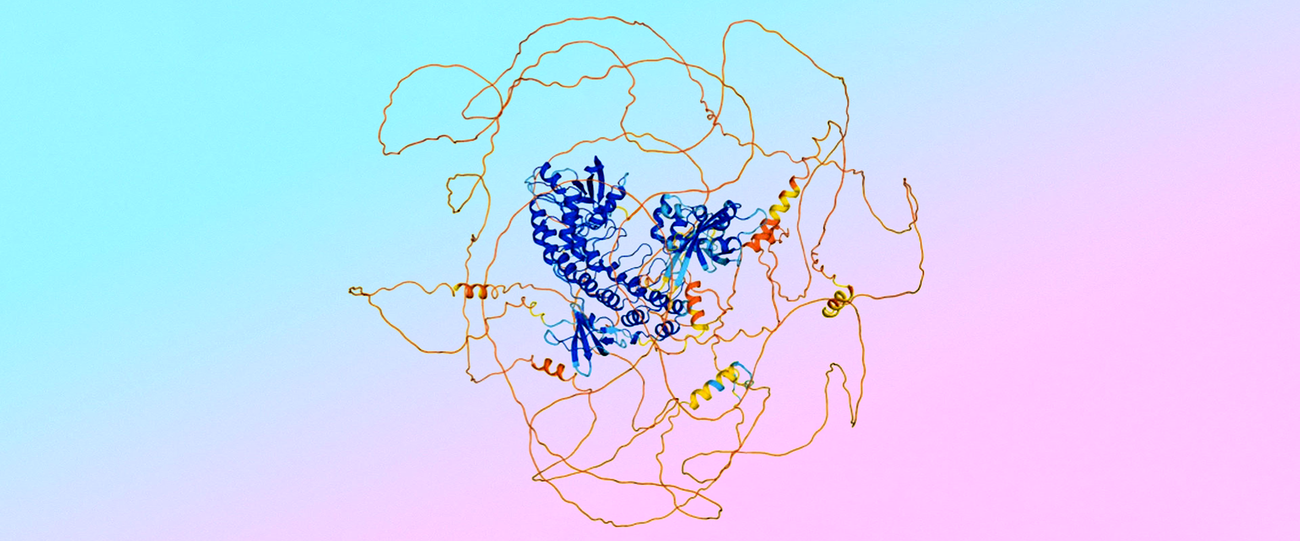AlphaFold Server: Revolutionizing Molecular Complex Prediction
In the ever-evolving landscape of molecular biology, the development of advanced computational tools has been a game-changer. One such groundbreaking tool is the AlphaFold Server, a free platform that allows researchers to generate molecular structures with remarkable accuracy. Since its launch in May, the server has been instrumental in creating over 1 million structures, aiding scientists in their quest to understand complex biological systems.
A User-Friendly Approach to Molecular Complexes
Lindsay Willmore, a research engineer at Google DeepMind, aptly describes the AlphaFold Server as “Google Maps for molecular complexes.” This analogy highlights the server’s ease of use and accessibility. Unlike traditional methods that often require extensive coding knowledge, AlphaFold Server simplifies the process. Researchers can simply input the sequences of proteins, DNA, RNA, or the names of small molecules into the tool. With a click of a button, the server generates the structure along with confidence metrics, allowing users to evaluate their predictions easily.
Expanding the Horizons with AlphaFold 3
The latest iteration, AlphaFold 3, represents a significant leap forward. The team behind AlphaFold 3 expanded the dataset to include a broader range of biomolecules, such as DNA, RNA, and small molecules. This comprehensive dataset was pivotal in training the new model. As Lindsay Willmore explains, “We were able to say, ‘Let’s just train on everything that exists in this dataset that helped us so much with proteins and let’s see how far we can get.’ And it turns out we can get pretty far.”
This extensive training has enabled AlphaFold 3 to predict a wide array of molecular structures with high accuracy, making it an invaluable tool for researchers across various fields of molecular biology.
Simplified Architecture for Enhanced Performance
One of the major advancements in AlphaFold 3 is its architectural shift. While AlphaFold 2 relied on a complex custom geometry-based module to generate structures, AlphaFold 3 employs a generative model based on diffusion. This approach is similar to other cutting-edge image generation models like Imagen. By adopting this diffusion-based generative model, the team has significantly simplified how the model handles the diverse types of molecules.
Addressing the Challenge of Disordered Regions
Despite these advancements, the shift to a diffusion-based model introduced a new challenge. The training data did not include “disordered regions” of proteins, which are parts of proteins that do not have a fixed structure. As a result, the diffusion model tended to inaccurately predict these regions as ordered structures with defined shapes.
To overcome this, the team leveraged the capabilities of AlphaFold 2, which excels at predicting disordered regions. The predicted structures from AlphaFold 2 were used as distillation training for AlphaFold 3, enabling the newer model to accurately predict disordered regions. “We were able to use those predicted structures from AlphaFold 2 as distillation training for AlphaFold 3, so that AlphaFold 3 could learn to predict disorder,” Lindsay elaborates.
A Lighthearted Mantra: “Trust the Fusilli, Reject the Spaghetti”
In the world of protein structure prediction, the team at DeepMind has a quirky yet insightful saying: “Trust the fusilli, reject the spaghetti.” This phrase underscores the importance of distinguishing between ordered and disordered structures. Ordered structures, like fusilli pasta, have a defined shape, while disordered regions resemble a chaotic pile of spaghetti. By accurately predicting these regions, AlphaFold 3 provides researchers with more reliable and meaningful structural data.
The Impact of AlphaFold on Molecular Biology
The AlphaFold Server has had a profound impact on the field of molecular biology. By democratizing access to advanced molecular structure prediction, it has empowered researchers around the world. The ability to generate accurate molecular complexes without the need for extensive computational expertise has opened new avenues for scientific discovery.
For instance, understanding protein structures is crucial for drug discovery. Accurate structural data can reveal potential binding sites for new drugs, accelerating the development of treatments for various diseases. Similarly, insights into DNA and RNA structures can enhance our understanding of genetic mechanisms and their role in health and disease.
The Road Ahead
As AlphaFold continues to evolve, its potential applications are vast. The integration of more diverse datasets and the refinement of predictive models will further enhance its accuracy and utility. Moreover, the collaborative efforts of the scientific community will drive continuous improvements, ensuring that AlphaFold remains at the forefront of molecular structure prediction.
In conclusion, the AlphaFold Server represents a monumental achievement in the realm of molecular biology. Its user-friendly interface, coupled with the advanced capabilities of AlphaFold 3, has revolutionized the way researchers approach molecular complex prediction. By making this powerful tool accessible to all, Google DeepMind has paved the way for a new era of scientific discovery.
Good to Know: The Role of AI in Molecular Biology
Artificial intelligence (AI) has become an indispensable tool in molecular biology. From predicting protein structures to analyzing genetic data, AI-driven models like AlphaFold are transforming the field. These models leverage vast datasets and sophisticated algorithms to make predictions that were previously unattainable.
AI’s ability to process and learn from large datasets allows it to identify patterns and relationships that may not be apparent to human researchers. This capability is particularly valuable in molecular biology, where the complexity of biological systems can be overwhelming.
Moreover, AI models can continuously improve as they are exposed to more data. This iterative learning process ensures that tools like AlphaFold become progressively more accurate and reliable over time.
Reference and Reviews
The scientific community has widely recognized the contributions of AlphaFold. Numerous studies and reviews have highlighted its accuracy and utility in predicting molecular structures. Researchers have praised its ability to generate reliable data quickly, significantly accelerating the pace of scientific discovery.
For those interested in exploring the technical details and applications of AlphaFold, the AlphaFold Server website provides comprehensive information. Additionally, the research papers and publications by Google DeepMind offer valuable insights into the development and capabilities of AlphaFold.
In summary, AlphaFold Server is not just a tool; it is a catalyst for innovation in molecular biology. By making advanced molecular structure prediction accessible to all, it is enabling researchers to unlock new frontiers in science and medicine. As we move forward, the continued evolution of AlphaFold promises to bring even more exciting advancements in the field.
For more Information, Refer to this article.



































